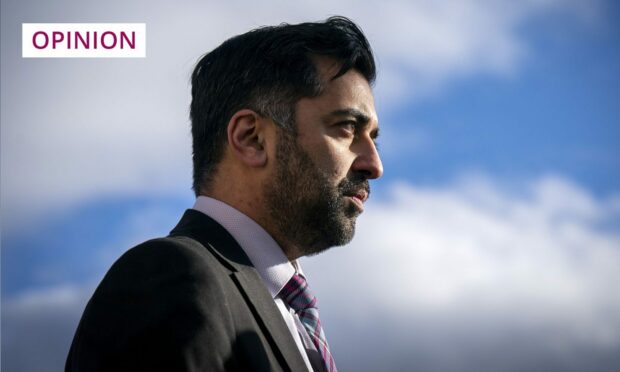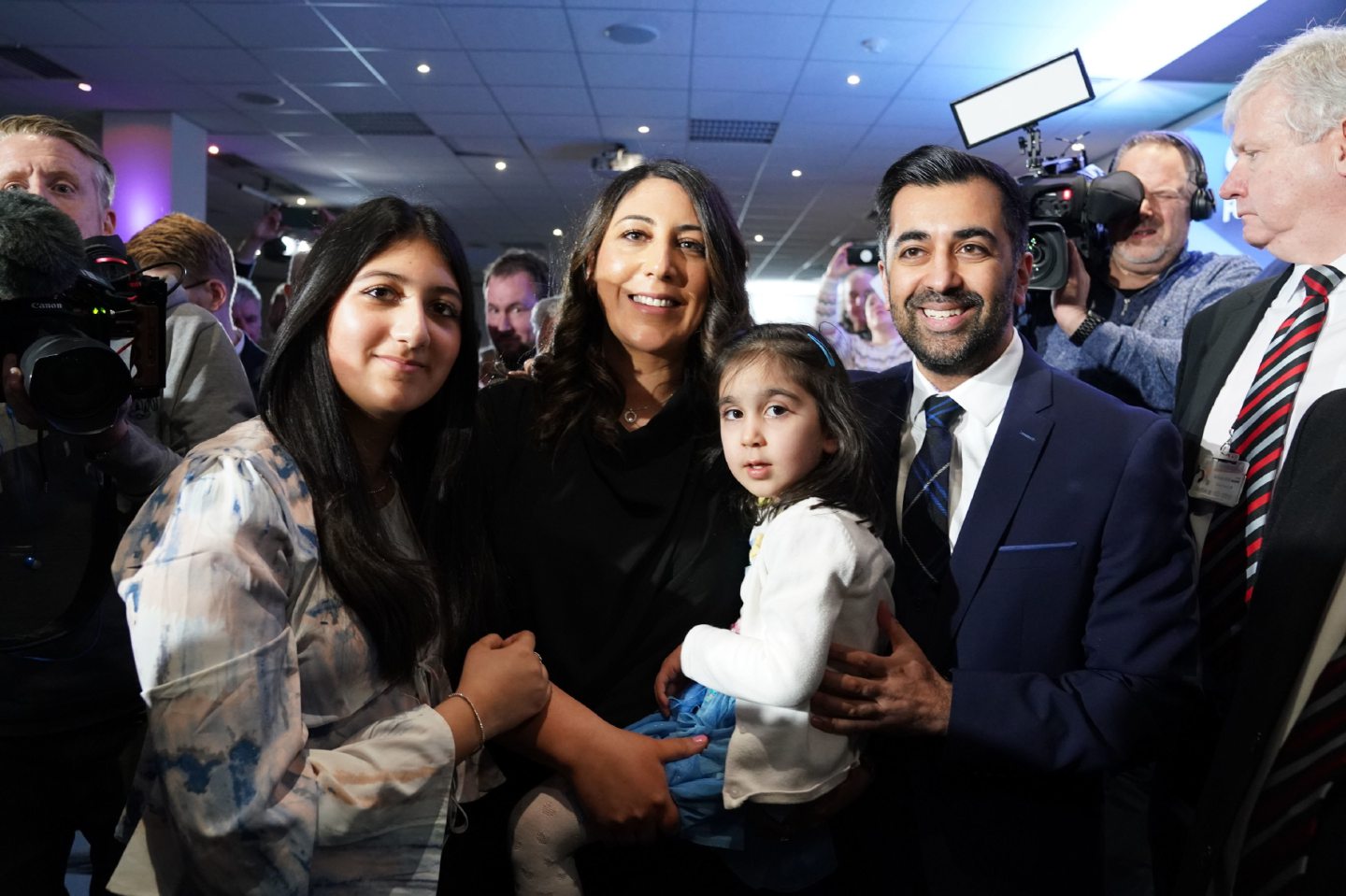The morale of SNP members has taken a bit of a battering over these last five weeks.
The turbulent leadership contest exposed points of weakness and divisions of a party that for a long time seemed unbeatable.
Amid the yellow-on-yellow squabbles, party members were charged with deciding Scotland’s next first minister.
Broadly speaking, they were offered something resembling continuity with Humza Yousaf or a change of direction with Kate Forbes or Ash Regan.
Few were confident in their predictions for how the votes would fall.
On Monday, the party – and the country – finally learned its fate.
Unique first few days in office
The SNP has its new leader and on Tuesday, MSPs at Holyrood will vote to confirm Humza Yousaf as Scotland’s new first minister.
It will be a day of celebration and ceremony for the new leader.
In the days that follow, he will have some unique new-job admin to complete: there will be phone calls with EU leaders and perhaps even a catch up with King Charles if the diary permits it.
It will be a busy time, but nothing compared to what is to come for the new first minister.
Humza Yousaf faces a myriad of issues that require his immediate attention.
He will want to move quickly to soothe tensions in the party and re-establish that famous SNP discipline.
By his side, he will need a cabinet of the best talent the parliamentary party has to offer.
Most leaders would prefer to be surrounded by their closest and most loyal allies but, given the state the country is in, it would be a mistake for him to favour pals over able performers.
In his victory speech, he was keen to reignite the team spirit, speaking of the “SNP family” and how much stronger they are united.
In his speech he also paid tribute to his leadership rivals and predecessor, as well as his family. He told his wife, “I love you” and his daughters, “you will always come first”.
Historic moment but Yousaf at a disadvantage
There is no doubt that the confirmation of Humza Yousaf in parliament on Tuesday will represent a historic moment for Scotland, as its first female first minister is succeeded by its first Muslim first minister.
However, Yousaf does begin his tenure at somewhat of a disadvantage.
He can’t rely on post-referendum energy and goodwill to carry him through his first few years in office, as Nicola Sturgeon did.
Nor does he have the prospect of an independence referendum to dangle in front of supporters.
It is a democratic outrage that in a supposedly voluntary union, the UK government can block the tested mechanism by which the people of Scotland can demonstrate that they would like to leave it.
But nothing Humza Yousaf said during the leadership contest suggested that he has a plan to get round this Westminster intransigence.
Unless Keir Starmer becomes prime minister and has a sudden desire to respect democratic mandates, it seems the constitutional question will remain unresolved for the foreseeable future.
This means that from now until the next Scottish Parliament election, Mr Yousaf will be judged solely on what progress he makes in tackling the big issues that face Scotland.
There’s plenty to be getting on with.
Child poverty rates are a constant – and shameful – reminder of wider societal inequality. The drugs deaths crisis, pressures on the NHS and the impact of the cost of living crisis on ordinary people all also require immediate attention.
There will be no honeymoon period for the new SNP leader.
In his speech he promised to work “every minute of every day to earn and re-earn your respect and trust.”
With divisions to heal within his party and a considerable volume of work already piling up in his in-tray, he might just find that “every minute of every day” is his new schedule from now on.





Conversation